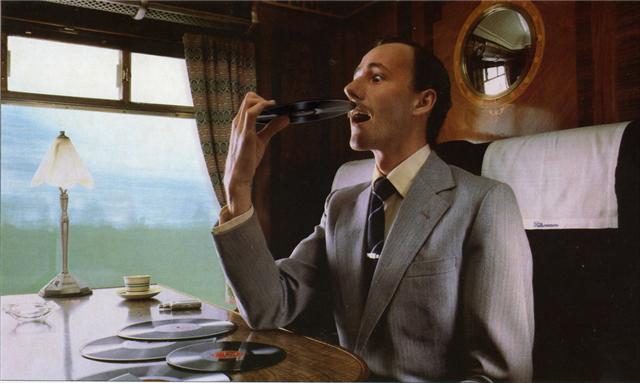
sábado, febrero 06, 2010
jueves, febrero 04, 2010
Butch Morris
| Butch Morris | |||||
| ALESSANDRO CASSIN
| |||||
| To resume again... More Hysteria, Please Psychoanalysis? The Pre-session of Ricki Lake The Lesbian Session Poste Restante
| Alessandro Cassin: What does the improvising conductor do, provided words like conducting, arranging, composing, qualify to describe the work? Butch Morris: The improvising conductor arranges the extemporized material of improvisers. He has a vocabulary of signs to instigate the events: I'm not conducting in the traditional sense, I'm provoking or asking for certain things to happen, but even of those things I have no idea until I hear them. AC: Would you say of what you do that it's something between arranging and composing? BM: Actually I wouldn't truly call it composing, but I could call it arranging, yeah, granted that you cannot start to arrange anything before you hear the material, before you have the material at hand. AC: As to the simultaneous process of listening and doing something with what you've listened to, how different is it from what a regular conductor does, and what about the risks of speed in this process, and the power trip which I guess shaping a whole ensemble should entail? BM: At certain times it does create a sensation of power, yeah. The power trip didn't start with me, it started with the idea that someone had to stand before an orchestra. There is a certain kind of aura, of position of authority that conductors themselves have created over the years. However, what I'm doing is similar and different. It's similar in the sense that I'm keeping a number of people in line and I'm giving my view of direction, particularly direction of music. Of course with me you have no idea what direction the music will take. The traditional conductor instead knows the direction of the music, what it's going to sound like. I have no idea of what a person is going to do, or play, or what the first sound is going to be, the second sound or any sound. But I know that as soon as I hear it, if it needs a certain kind of care I have to shape it. AC: How is chance at stake here? BM: Chance is a word John Cage has used a lot in his writing. I don't like to see it as chance, I like to see it as risk. I think risk insinuates also a certain kind of challenge. Chance doesn't necessarily do that to me. [...] AC: Do musicians resist your method, what are the most common questions raised by people at work with you? BM: I have had resistance to the method, though that's generally when I'm called to work with an existing ensemble that doesn't know quite what I'm doing or why I'm doing it. One of the most common questions or statements is, yes — why am I doing it? and — if you want me to do it why don't you just write it down? What I'm trying to bring about is ensemble spontaneity; there are still a lot of people resisting any kind of total improvisation. AC: Would you rather work with the same musicians on a regular basis, or do you envision being so familiar with the method as to be able to conduct improvisation with little or no rehearsals? BM: I do have a core group in New York of about five or six people that I use all the time not only for conductions but for notated compositions and other kind of projects. It makes my ensemble more flexible when I hire people that read music well. Believe me, I like a lot of different kinds of music, and I like to write it, and I also like to improvise. One of the reasons I even started thinking of this conducting was really to control, make more flexible and lucid my notated music. AC: Let's get to the second part of the question, do you envision being so familiar with the method as to be able to conduct improvisation with little or no rehearsals? BM: I would like that very much, I hope it's coming to that. That I could call up three people in every country I've ever been, but there is not really that kind of familiarity at this point and I feel obligated to at least run through the vocabulary one more time. AC: You have been conducting for twenty years. How does progression in your work contemplate evolution? BM: It still feels very young to me and it still feels very fresh, Conduction #1 is completely different from Conduction #31. I think there's a long way to go... I want to take it a lot further, a lot. There's only been one composer to write for my particular talent, that was Misha Mingelberg in '87. He wrote a piece for me to conduct and it really worked quite well. His identity was still in the music, it didn't sound like me, I think this could be a problem with some composers thinking they are bound to loose their musical identity. [...] | ||||




